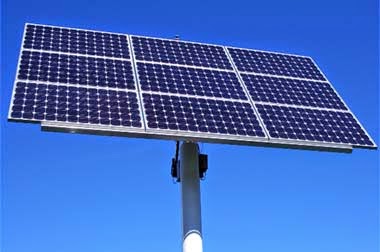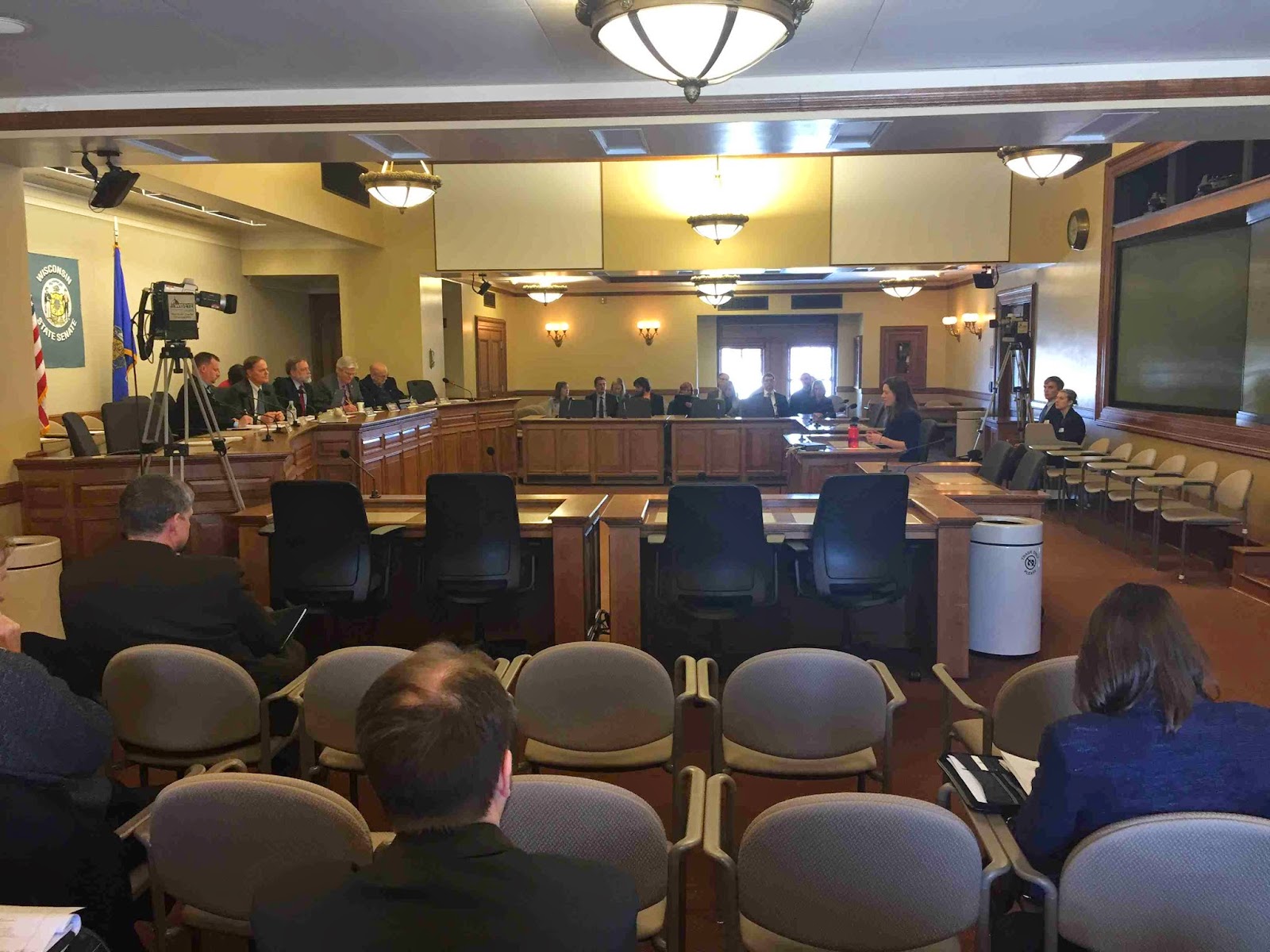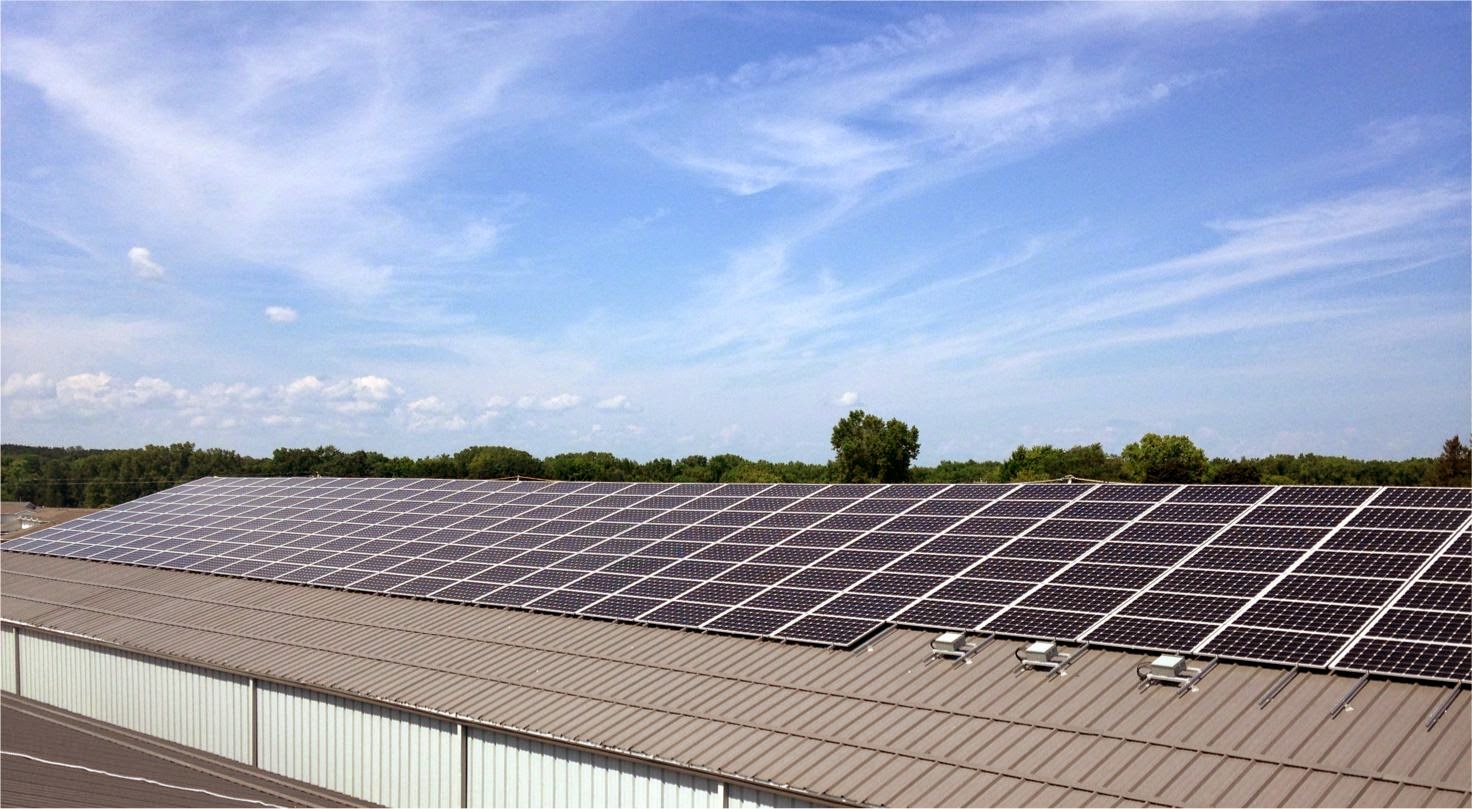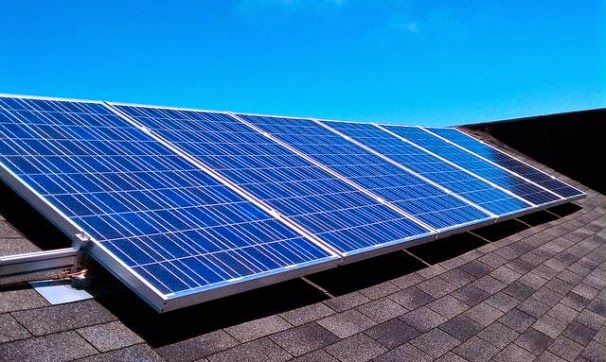by jboullion | Mar 25, 2015 | Uncategorized
The below article by Tom Clementi appeared in the Appleton Post Crescent Wednesday March 25th. Titled “Check Walker’s Motives on Energy Choices,” it discusses differences in Governor Walker’s self-proclaimed “supportive” position on bioenergy and renewables in his presidential stump speech and actions taken in his proposed 2015-2017 state budget that eliminates state funding for important bioenergy research.
Check Walker’s Motive on Energy Choices
By Tom Clementi
If you’re like me and find the news involving Scott Walker and his ever-changing views on seemingly everything— from abortion as something between “a woman and her doctor” to “I will sign the bill” prohibiting abortion after 20 weeks, from saying that immigration amnesty “makes sense” to “I don’t believe in amnesty,” and “I have no interest in a right-to-work law” to signing the law at the first possible moment — just dizzying, well, welcome to the club.
I’m really not sure how he does it, or frankly, how the people of Wisconsin can keep up with it or put up with it. Frankly, it makes me wonder if Walker is ever sure about anything or if he just changes his opinions as the political situations and locations warrant.
Recently, Walker traveled to Iowa and proclaimed his support for ethanol and bio-renewable fuels, which is about what you’d expect from a candidate stumping in the Corn Belt. Never mind that as far back as 2006, in his first run for governor, he was critical of the idea: “Mandates hurt Wisconsin’s working families. And whether they are from Washington or Madison, we as fiscal conservatives should oppose them.”
Yes, we know politicians change their minds.
But deep in his 2015-2017 budget, Walker calls for elimination of the University of Wisconsin’s renewable energy program. Keep in mind that this is separate from his proposal to cut the University of Wisconsin’s budget by $300 million. The research center develops ways to create energy out of wood, grasses and corn — all bio-renewable fuels. It partners with private companies to help them become more energy-efficient. An example is Johnson Controls, Wisconsin’s largest company, which opened a research facility on the Madison campus last year.
The energy research program started eight years ago with a $125 million grant from the George W. Bush administration. It continues to receive $25 million per year from the Department of Energy. The state’s financial contributions helped fund the actual construction of the building, which opened just two years ago. UW’s renewable energy program has been an unqualified success. It has filed 100 patent applications in the past eight years; that’s an average of about one per month.
Start-up companies have been enthusiastic about using UW’s technology, including GluCan Biorenewables, a Missouri company planning to build a plant in northern Wisconsin to develop chemicals used in the papermaking industry. That’d mean a more efficient papermaking process, and jobs to go with it. Another research center innovation is a process that breaks down plant sugars and coverts them to energy — energy from biological, not fossil fuels.
Walker, however, now wants to pull the plug on the state’s $4 million annual funding, which would mean the elimination of 35 positions and cripple the program. But why? To just save $4 million? It may be more important to recall exactly who has funded the Walker train from the start.
The amount of outside-the-state money that has flowed to the governor’s campaign coffers has been significant. Those donors are decidedly in the fossil-fuel business and their profits are threatened when they come up against renewable energy sources.
It’s fair to ask why there has been no expansion of wind power programs in Wisconsin in the last four years. Or why it was so easy for a Florida company to get approval to build the country’s largest open-pit mine in northern Wisconsin (though they’ve now quietly backed out of the mine’s construction). Or why, as soon as he walked into the governor’s office, Walker canceled an $800 million contract from the federal government to repair and expand rail service in Wisconsin.
Meanwhile, the amount of road construction in the state continues to increase and Walker wants to borrow the money to fund it. Who benefits from these type of policies? Whose profits increase? Those whose companies deal in gas, oil, coal and asphalt are those whose organizations have contributed heavily to Walker’s political campaigns.
I don’t know how the governor plans to reconcile his differing views and statements. I don’t know how he can attempt to dismantle the most successful bio-renewable research program in his own state, and then go next door to proclaim his support for an industry which uses the very research he wants to shut down.
It’ll be interesting to see how the governor defends his constantly fluctuating views on so many issues. We’d probably be wise to check Walker’s travel map before making any predictions on what he might say next.
— Tom Clementi is an Appleton resident. He can be reached at tjcwriter@gmail.com.

by jboullion | Mar 19, 2015 | Uncategorized
Recently, two anti-solar opinion pieces appeared in the publication Utility Dive. The first, by Dr H. Edwin Overcast, favors increased fixed rates for solar customers as a solution to the solar “problem.” The second, by Dr. Ashly Brown, claims solar customers do not deserve to be reimbursed at full retail value for the electricity they sell back to the grid. RENEW’s Executive Director Tyler Huebner and Senior Attorney at the Environmental Law and Policy Center Brad Klein teamed up to write a response to Dr. Overcast and Dr. Brown on why “data is the key to determining solar’s true value.”

by jboullion | Feb 20, 2015 | Uncategorized
Yesterday, our executive director, Tyler Huebner, testified before the Wisconsin Senate’s Natural Resources and Energy Committee in an informational hearing on the Focus on Energy program which delivers energy efficiency and renewable energy rebates and information to individuals, businesses, farmers, and local governments throughout Wisconsin. The Committee was interested in learning about the progress and current operation of the program.
 |
Melissa VanOrnum of DVO, Inc, an anaerobic digester
company based in Chilton, testifying before the committee. |
In addition to our own testimony, RENEW invited business members DVO, Inc of Chilton, Eland Electric of Green Bay, and BIOFerm of Madison to testify about the benefits of Focus on Energy to their businesses and to the customers they serve.
RENEW and our members testified that the Focus program for renewable energy is a key market driver to get customers to invest in renewable energy projects. We discussed the job creation elements of the program, how the Focus program leverages 5-10 times the amount of private funds to get projects done, and the businesses discussed powerful stories from their customers’ projects and their own business growth.
The hearing went very well. Testimony also came from representatives of the Focus on Energy program, Cadmus, who conducts the evaluations of the program, Customers First! Coalition, Wisconsin Utilities Association, Clean Wisconsin, Johnson Controls, CREE Lighting, and others.
RENEW’s testimony is printed below.
Testimony of RENEW Wisconsin on the Focus on Energy Program
Before the Senate Natural Resources & Energy Committee
My name is Tyler Huebner, and I am the executive director of RENEW Wisconsin, a nonprofit organization which promotes renewable energy and represents Members including individuals and over 50 businesses in Wisconsin’s renewable energy industry.
Thank you for the opportunity to speak today.
Renewable energy technologies have been offered in Focus on Energy since 2002.
Eligible renewable energy technologies include:
• Biogas such as anaerobic digesters for dairy farms
• Biomass
• Ground source or geothermal heat pumps
• Small wind energy systems
• Solar photovoltaics
• Solar water heating
Installing these types of energy systems enable businesses, farmers, local governments, schools, and individuals to become more self-reliant for the energy needs, become more energy independent, save money, and plan their energy costs for the future.
Funding for renewable energy rebates has averaged $5 to $6 million per year to customers, over the years from 2007 to 2014.
The Focus on Energy rebates are an important stimulus to get customers interested in the program, and get them to act and invest their own funds into projects.
The renewable energy program leverages significant levels of private funds. In 2012, for example, $5 million in incentives from Focus on Energy leveraged over $40 million in additional funds.
Overall, the Focus program, per a 2012 evaluation of economic impacts, supports over 1,400 jobs per year in Wisconsin, with more jobs created in future years too due to the savings. The renewable energy portion actually accounted for more jobs per dollar than the energy efficiency funds. Focus on Energy, because it is funding just a portion of overall project costs, provides a large jobs multiplier for the amount of funding spent.
The rebate structure of the Focus program has led to its success in the marketplace over the past 12 years. Using incentives has proven most successful way to obtain the participation in the program. The renewables rebates were renewed for 2015 and 2016, with a decision from the Public Service Commission in 2016 which will determine if rebates will be available in 2017 and 2018.
Going forward, we look forward to also making the new $10 million renewable energy revolving loan program a success, too. This loan program is modeled after a successful program run in Iowa. From our early conversations with our Member businesses, it may work much better for some technologies like solar, than others, particularly digesters, given their larger investment needs. If the loan program is successful, it will help banks get more comfortable with lending for renewable energy technologies through the education and technical assistance the Focus on Energy team will provide.
The new $6.4 million dairy digester program is also promising, as it will explore how to make the digester technology work on smaller farms. With approximately 12,000 small to medium sized dairy farms, identifying workable technologies and projects may be able to open up this new market for digesters.
The renewable energy program has gotten consistently more cost-effective over the years. The most recent evaluations show renewable energy provides a 2-to-1 overall effectiveness when economic benefits including job creation are included, and is now just shy of 1.0 on energy-only cost-effectiveness. Solar PV, for the first time ever, had a cost-effectiveness above 1.0 in 2013.
In closing, the renewable energy program is program that creates jobs, that drives investment into Wisconsin’s economy, and that enables businesses, farms, local governments, and individuals to become more energy independent and more in control of their future energy costs.

by jboullion | Feb 9, 2015 | Uncategorized
Circuit Court Judge sends 2013 decision from Wisconsin Public Service rate case back to the Public Service Commission
For the second time in 12 months, a Dane County Circuit Court judge has overturned Public Service Commission (PSC) rulings that restrict net metering, a key policy that drives customer investments in renewable energy. The Judge’s order remands two decisions back to the PSC for “further fact-finding and to establish a sufficient record,” but does not immediately change the net metering program.
 |
A 100 kilowatt Solar electric system on Griffin Industries in Green Bay
(Photo provided by Eland Electric) |
The lawsuit, advanced by RENEW Wisconsin, a nonprofit renewable energy advocacy organization based in Madison, challenged two PSC approvals rendered in Wisconsin Public Service Corporation’s 2013 rate case. These decisions paved the way for Wisconsin Public Service (WPS) to reduce payments for clean electricity generated by their customers.
The first decision allowed WPS to greatly reduce the size of the renewable energy system qualifying for net metering, from 100 kilowatts to 20 kilowatts. This change restricts many businesses, schools, and other medium-sized electricity users from participating in the program.
The second decision granted the Green Bay-based utility’s proposal keep their netting period at 30 days, which forces customer-generators to reduce the size of their solar systems to avoid being paid 3 cents per kilowatt-hour for the electricity they export to the grid. As of 2013, WPS’ peer utilities in Wisconsin used annual netting, allowing customers to bank and utilize credits throughout a 12-month period.
In its brief, RENEW argued that WPS failed to offer any substantial evidence in support of its requests to alter its net metering structure for the purpose of reducing compensation to customers with solar and other renewable energy systems. After reviewing the rate case record, Judge Rhonda Lanford agreed with RENEW’s arguments, noting that the “record produced is devoid of substantial evidence” and insufficient to support an agency finding of fact.
“It is important that we promote and defend Wisconsin renewable energy in all decision-making venues,” said Tyler Huebner, RENEW Wisconsin’s Executive Director. “These are complex issues at a time of great change in the electricity industry. Commission decisions need to be based on real, rigorous, and impartial evidence and analysis.”
In June 2014, the same judge struck down a 2012 PSC decision allowing Milwaukee-based We Energies to limit the availability of its net metering service to solar customers, citing a lack of evidence in the hearing record.
“Solar energy has become an affordable alternative for customers who desire to manage their electric bills effectively and supply themselves with clean energy,” added Huebner. “Solar system owners provide many benefits to other utility customers, such as producing locally generated electricity at the highest-use times of the day. The Commission needs to account for these benefits that solar energy provides in utility rate cases, so that customer-owned renewable energy systems are compensated at fair value.”
RENEW Wisconsin and The Alliance for Solar Choice, a national solar advocacy group, recently filed suit in the same Circuit Court against the PSC in the 2014 We Energies rate case. In that case, We Energies was granted approval to overhaul their net metering programs to charge an extra monthly fee to residential and small business customers that generate some or all of their own power, and switch to monthly netting. RENEW and TASC’s arguments are consistent with this case: the utility and PSC have not provided or relied upon sufficient evidence or analysis to justify the decision.
RENEW Wisconsin leads and accelerates the transformation to Wisconsin’s renewable energy future through advocacy, education, and collaboration. More information on RENEW’s web site at www.renewwisconsin.org.

by jboullion | Feb 2, 2015 | Uncategorized
On January 23rd RENEW’s Program and Policy Director Michael Vickerman gave the keynote address at the 84th annual state convention of the Wisconsin Farmers Union in Eau Claire. Michael’s talk was titled “Moving Solar Forward” and was part of a half-day of sessions on solar energy for Wisconsin farmers. His presentation can be found here.
Thanks to the Wisconsin Farmers Union for having Michael speak and for helping move solar forward in Wisconsin!

by jboullion | Jan 22, 2015 | Uncategorized
The Alliance for Solar Choice and RENEW Wisconsin ask courts to rule on the legality of controversial rate case decision
Contacts:
Amy Heart Tyler Huebner
The Alliance for Solar Choice RENEW Wisconsin
414-510-8965 (m) 608-575-2201 (m)
MADISON, WI – January 22, 2015 – The Alliance for Solar Choice (TASC) and RENEW Wisconsin today filed an appeal of the Wisconsin Public Service Commission’s December decision to impose discriminatory charges against solar customers in We Energies territory. The appeal challenges 1) the total lack of support in the public record for the charges and 2) the discrimination against solar and low usage customers.
“The Public Service Commission’s own staff expert testified that there was not enough evidence in the record to approve the discriminatory solar charges,” said Amy Heart, spokesperson for The Alliance for Solar Choice. “That will be difficult to deny in the courts.”
Over 500 Wisconsin residents attended a public hearing in October to oppose We Energies’ proposal, and their outcry garnered national media attention.
“The Public Service Commission has essentially permitted a private company, We Energies, to institute a new tax on some of its customers,” said Tyler Huebner, Executive Director of RENEW Wisconsin. “The record doesn’t support this decision, and we look forward to an impartial review of the facts behind this case.”
“We Energies commissioned a confidential internal study of solar in Wisconsin and found that solar customers provide a net financial benefit to all ratepayers,” said Heart. “That will be difficult for the Commission to deny in the courts.”
About The Alliance for Solar Choice: The Alliance for Solar Choice (TASC) leads the rooftop solar advocacy across the country. Founded by the largest rooftop companies in the nation, TASC represents the vast majority of the market. Its members include: Demeter Power, Silevo, SolarCity, Solar Universe, Sunrun, Verengo, ZEP.
About RENEW Wisconsin: RENEW Wisconsin leads and accelerates the transformation to Wisconsin’s renewable energy future through advocacy, education, and collaboration. RENEW represents over 50 companies in the Wisconsin renewable energy industry.





